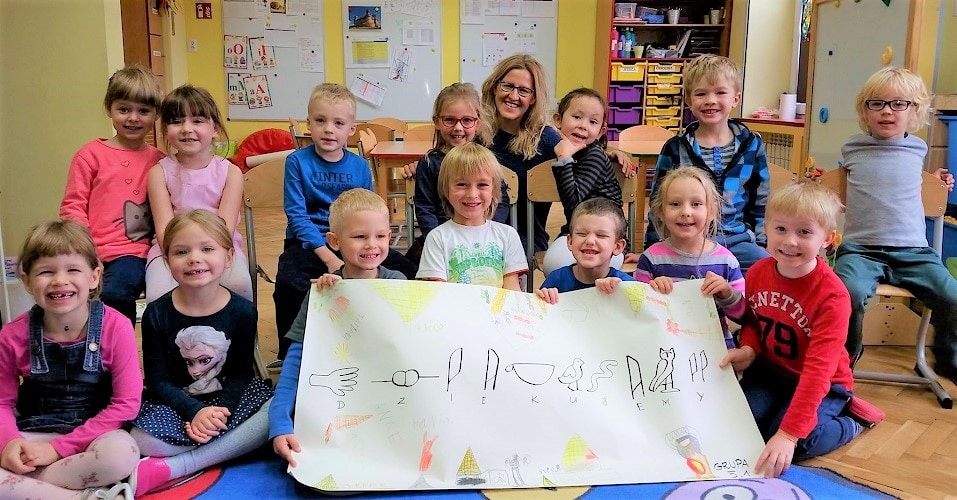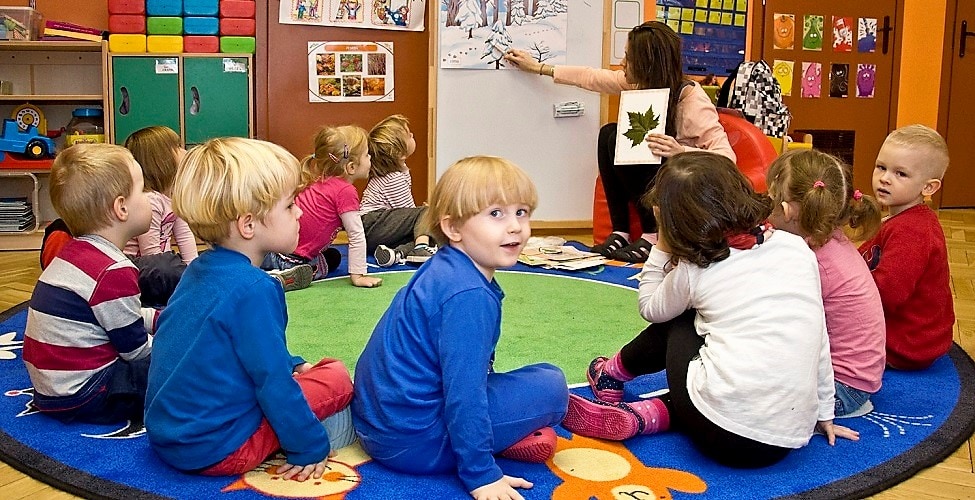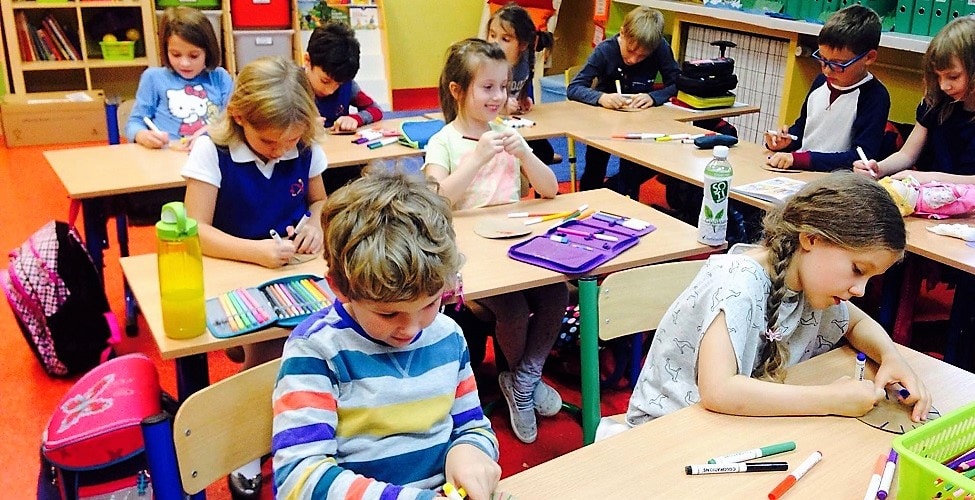Multilingualism of children – effective methods of learning a language

Multilingualism has only advantages. Moreover, the advantages are visible on different levels. The use of more than one language, of course, allows for more effective communication.
It opens up many opportunities, such as studying at prestigious foreign universities, and ultimately increases our attractiveness on the labor market.
However, it should not be forgotten that learning languages is also an excellent exercise for your brain. Numerous studies have shown that by training linguistic skills, we can effectively prevent degenerative diseases of the brain and improve the mental functions necessary in everyday life, such as cognitive skills, including problem solving and decision making.
The great thing about learning a language is that it is never too late! But despite this, in this case it is worth following the principle “the sooner the better”.
Why is it worth teaching children foreign languages from an early age
We speak of multilingualism when each language spoken by a given person is the natural language, i.e. the first one. This skill can only be acquired by being brought up in a specific linguistic environment. Of course, in adulthood you can also master the language perfectly, but you will not be multilingual anymore.
The second argument for is that young children learn quickly. Few adults are aware of the fact that a toddler is able to learn a foreign language communicatively within a few weeks!
In addition, early learning, necessarily conducted by teachers who are native speakers of the language, is a guarantee that our child will have an impeccable accent. In the case of children, they do not talk about language learning, but about language acquisition. A small child will also learn more effectively natural syntactic structures, intonation and
other linguistic aspects that are very difficult to develop through traditional learning.
Why is the language immersion method so effective?
In the case of the youngest students, traditional teaching methods are not used, but language immersion, that is, “immersion” in the language.
The research clearly indicates the high effectiveness of linguistic immersion. American students, who spent at least 50% of their time speaking a foreign language, acquired new vocabulary and phrases much faster than their peers. Through immersion, the child acquires linguistic competences in the same way as when learning the native language. Moreover, the necessity to use the new system means that the toddler finds it indispensable for everyday communication.
The immersion method affects all the senses, and at the same time develops all linguistic competences, both passive and active, at the same time. The child learns to speak, listen comprehensively, read and write at the right moment. Moreover, it happens with almost no effort on his part.
Knowing many languages is an easier start to adulthood
As we mentioned at the beginning, multilingualism opens up many possibilities and makes adult life much easier. There are many advantages, ranging from those related to entertainment, through education, and ending with a career and professional life.
A multilingual person can freely watch their favorite foreign movies and read books in the original versions, as well as travel almost all over the world. After completing compulsory education, the child has a better chance of taking up prestigious studies abroad, and in the end he can pursue his professional ambitions in the chosen country.
As we all know very well, in the 21st century fluent English is the absolute minimum necessary to build a career. Each additional language, in turn, is a non-negotiable advantage.
Increasing cognitive skills
We mentioned in the introduction that knowing more than one language translates into better cognitive skills. It is a collective term for competences such as reasoning, problem-solving, planning, abstract thinking, better understanding of complex ideas, and learning from experience. So these are things that are extremely useful in everyday life.
Moreover, various types of tests and studies link cognitive skills with better performance both at school and at work. Such people acquire new competences faster, are more effective and
efficient. Even if they have a complicated and demanding job. In summary, people with developed cognitive skills are better prepared for working life and are also more qualified workers.
What influences the increase of cognitive skills while learning a foreign language? It is a necessity to switch between specific idioms. Such a process is extremely stimulating for the development of the brain and makes the child acquire the desired competences better and faster. Both linguistic and social and scientific.
Easy learning of new vocabulary
The language learning methods used in nurseries and language kindergartens make children learn new words very quickly. And not only in a foreign language, but also in the native one. What methods, apart from immersion, are used in the education of the youngest? In ITSW nurseries and kindergartens, it is the OPOL method, i.e. One Language, One Person (one person, one language). It is one of the most popular and, at the same time, the most effective language strategies.
According to the analyzes carried out by the linguist Annick De Houwer, whose research group included over 2,000 bilingual families, the OPOL method turned out to be a success in 75% of cases. The success of the strategy was of course dependent on how closely the one person one language principle was followed.
One person is responsible for a specific language in our branches. Another tutor teaches Polish, and another teaches English, French, Chinese or Japanese. Thanks to this, the children identify the educator with the selected language.
The child’s open mind and assimilation of new knowledge faster
You don’t have to be a brain development specialist to know that the younger we are, the easier we learn new skills. In the case of children, this property is best used for language learning. By spending time in a peer group playing and learning, the toddler will quickly learn the new system.
The mind of the child, as well as his speech apparatus, are very plastic, which guarantees 100% success in language learning using natural methods.
There are many more benefits
In this article, we have briefly described the most important advantages of learning foreign languages at a young age. However, there are many more! Learning languages broadens your horizons, socializes you, teaches you to think critically – that is, it perfectly prepares you for life in society. Enrolling your child in a Nursery or Kindergarten is the best thing we can do for them.
If you are considering sending your child to a multilingual facility, we invite you to our branches in Warsaw and Krakow! Qualified staff will provide your kids with the best care, and beautiful and well-equipped rooms and a playground will make learning a real pleasure for kids.



